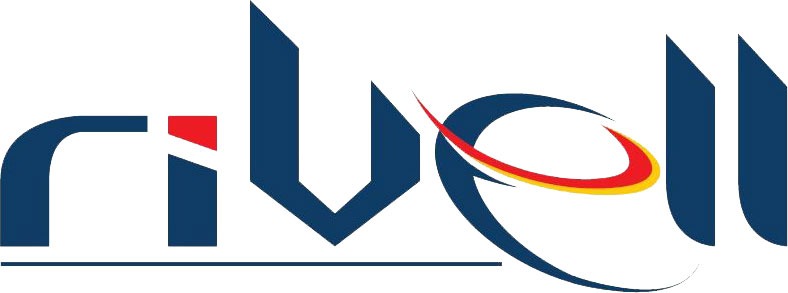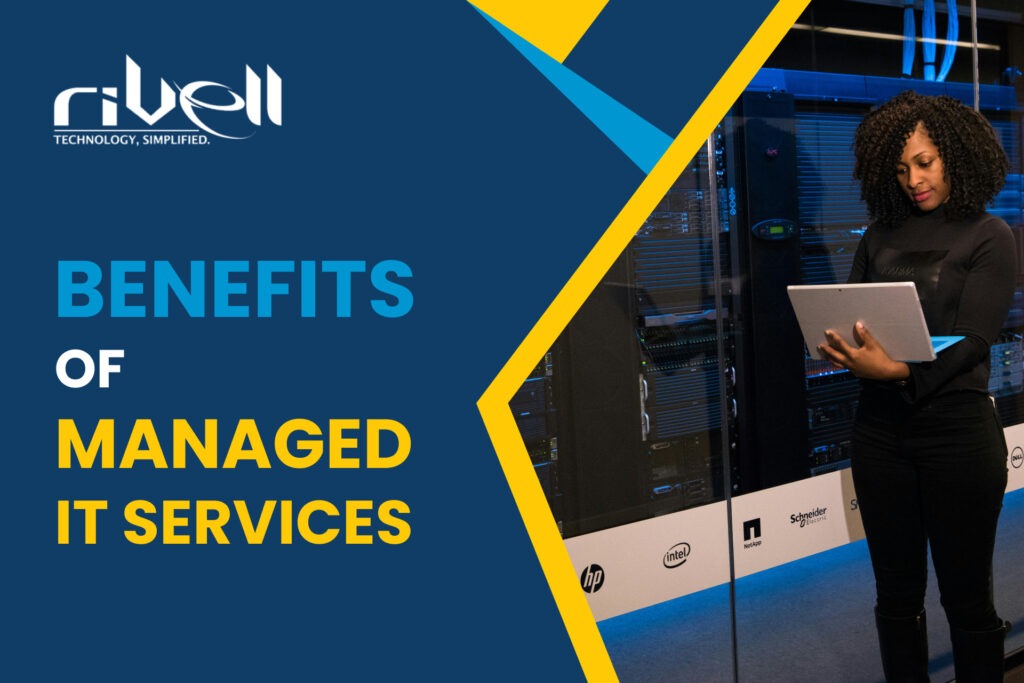In the fast-paced digital landscape of today’s business world, organizations are constantly challenged to stay ahead of the curve. Technology plays a pivotal role in this endeavor, serving as a catalyst for innovation, productivity, and competitive advantage. However, managing and optimizing complex IT infrastructure can be a daunting task, particularly for small and medium-sized enterprises (SMEs) with limited resources and expertise.
This is where Managed IT Services emerge as a game-changer, offering a holistic solution that not only addresses the technical intricacies but also unlocks a plethora of benefits for businesses. Let’s delve deeper into the multifaceted advantages that Managed IT Services bring to the table:
Benefits of Managed IT Services
1. Cost Efficiency and Predictability
Managed IT Services provide businesses with a predictable cost structure that eliminates the need for hefty upfront investments in hardware, software, and personnel. By outsourcing IT management to a specialized provider, organizations can leverage economies of scale and access enterprise-grade technologies and expertise without bearing the full burden of ownership. Moreover, with fixed monthly fees and service level agreements (SLAs), businesses can better forecast and manage their IT expenditures, avoiding unexpected costs associated with system failures, downtime, or compliance breaches.
According to a study by CompTIA, 46% of organizations report cutting their IT costs by 25% or more after adopting Managed IT Services.
2. Access to Expertise and Experience
Partnering with a Managed IT Services provider in nj grants businesses access to a team of seasoned professionals with specialized skills and extensive experience across diverse technologies and industry sectors. These experts undergo continuous training and certification to stay abreast of the latest developments and best practices in the ever-evolving IT landscape. By tapping into this pool of knowledge, organizations can benefit from strategic guidance, proactive problem-solving, and tailored solutions that are aligned with their unique business goals and challenges.
3. Enhanced Security and Compliance
Cybersecurity threats loom large in today’s digital ecosystem, posing a significant risk to businesses’ sensitive data, intellectual property, and reputation. Managed IT Services providers employ a comprehensive array of security measures, including firewalls, intrusion detection systems, antivirus software, encryption protocols, and multi-factor authentication, to fortify defenses against cyber threats. Moreover, they conduct regular security audits, vulnerability assessments, and compliance checks to ensure that businesses adhere to regulatory requirements and industry standards, such as GDPR, HIPAA, PCI DSS, and ISO 27001.
According to IBM’s Cyber Resilient Organization Report, companies with an incident response team in place and extensive use of encryption and automated security technologies can reduce the cost of a data breach by $1.23 million on average.
Read More : The Rise of Cyberattacks: How Managed IT Can Keep You Secure in 2024
4. Proactive Monitoring and Support
Unforeseen IT issues can disrupt business operations, impede productivity, and erode customer satisfaction. Managed IT Services providers offer proactive monitoring and remote it support, leveraging advanced monitoring tools and automation to detect, diagnose, and resolve potential issues before they escalate into major disruptions. With 24/7 helpdesk support, rapid response times, and performance optimization, businesses can minimize downtime, maximize uptime, and ensure seamless continuity of operations.
5. Scalability and Agility
As businesses grow, evolve, or undergo periods of change, their IT requirements may fluctuate dynamically. Managed IT Services offer scalable solutions that can adapt to shifting demands, whether it involves expanding infrastructure, migrating to cloud-based platforms, integrating new technologies, or supporting remote work environments. This scalability enables businesses to flexibly adjust their IT resources, scale up or down as needed, and stay agile in response to market dynamics and business opportunities.
According to Gartner, by 2025, 80% of enterprises will have shut down their traditional data centers, compared to 10% today, as they move workloads to colocation, hosting, and the cloud.
6. Focus on Core Competencies
By outsourcing IT management to a Managed Services provider, businesses can offload the burden of routine tasks, such as software updates, patch management, system maintenance, and technical support. This allows internal IT teams to focus their time, energy, and expertise on strategic initiatives, innovation projects, and value-added activities that directly contribute to the organization’s growth and competitive differentiation. Moreover, by delegating IT responsibilities to experts, businesses can mitigate the risk of skill gaps, turnover, and burnout within their internal IT departments.
7. Comprehensive Disaster Recovery and Business Continuity
In the face of unforeseen disasters, emergencies, or cyberattacks, businesses need robust disaster recovery and business continuity plans to minimize downtime, data loss, and financial impact. Managed IT Services providers implement resilient backup solutions, data replication strategies, failover mechanisms, and recovery protocols to ensure rapid restoration of critical systems and services. By having a comprehensive disaster recovery strategy in place, businesses can mitigate risks, safeguard their reputation, and maintain operational resilience in the face of adversity.
8. Innovative Technological Solutions
Managed IT Services providers are at the forefront of technological innovation, constantly evaluating emerging trends and advancements to deliver cutting-edge solutions to their clients. From cloud computing and virtualization to artificial intelligence and Internet of Things (IoT), these providers leverage innovative technologies to optimize business processes, improve efficiency, and drive digital transformation. By partnering with a Managed Services provider, businesses gain access to the latest innovations and strategic insights that enable them to stay ahead of the curve and capitalize on new opportunities in the digital marketplace.
9. Comprehensive IT Strategy and Roadmap
Managed IT Services providers don’t just offer reactive support; they also play a proactive role in shaping the long-term IT strategy and roadmap of their clients. Through strategic planning sessions, technology assessments, and business consultations, these providers collaborate closely with organizations to align IT investments with overarching business objectives. By developing a comprehensive IT strategy that aligns with the organization’s goals, priorities, and budgetary constraints, businesses can optimize their IT investments, drive innovation, and achieve sustainable growth in the long run.
10. Vendor Management and Procurement Assistance
Managing relationships with multiple technology vendors can be time-consuming and complex. Managed IT Services providers simplify this process by serving as a single point of contact for all IT-related vendors, including hardware suppliers, software vendors, cloud service providers, and telecommunications carriers. They handle vendor management, contract negotiations, and procurement processes on behalf of their clients, ensuring cost-effective solutions, favorable terms, and seamless integration of third-party products and services into the existing IT infrastructure.
Read More : Making The Right Choice Between Staff Augmentation vs Managed Services
11. Regulatory Compliance and Risk Management
Compliance with regulatory requirements and industry standards is paramount for businesses operating in highly regulated sectors, such as healthcare, manufacturing, finance, Construction and government. Managed IT Services providers assist organizations in navigating complex regulatory landscapes by implementing robust compliance frameworks, security controls, and risk management strategies. They conduct regular risk assessments, compliance audits, and security reviews to identify gaps, mitigate vulnerabilities, and demonstrate adherence to regulatory mandates, thereby minimizing legal liabilities and reputational risks.
12. Business Intelligence and Data Analytics
Data is a valuable asset that holds the key to insights, trends, and opportunities within organizations. Managed IT Services providers help businesses harness the power of data through advanced analytics, reporting tools, and business intelligence solutions. By analyzing vast volumes of structured and unstructured data, these providers uncover actionable insights, optimize decision-making processes, and drive strategic initiatives that enhance operational efficiency, customer engagement, and revenue generation. Whether it’s predictive analytics, data visualization, or machine learning algorithms, Managed Services providers empower businesses to leverage data-driven intelligence for competitive advantage.
Frequently Asked Questions About Managed IT Services
1. What exactly are Managed IT Services?
Managed IT Services refer to outsourcing the responsibility for maintaining, managing, and anticipating the need for a range of processes and functions to improve operations and cut expenses. This includes tasks such as network monitoring, data backup, cybersecurity, technical support, and more.
2. How can Managed IT Services benefit my business?
Managed IT Services offer numerous benefits, including cost savings, access to specialized expertise, enhanced security, proactive monitoring and support, scalability, and the ability to focus on core business objectives without the burden of IT management.
3. Are Managed IT Services only suitable for large corporations?
No, Managed IT Services are suitable for businesses of all sizes, including small and medium-sized enterprises (SMEs). In fact, SMEs often stand to benefit the most from Managed Services as they may lack the resources or expertise to manage their IT infrastructure internally.
4. How do Managed IT Services providers ensure data security and compliance?
Managed IT Services providers employ a range of security measures, including firewalls, intrusion detection systems, encryption, and regular security audits, to protect sensitive data and ensure compliance with industry regulations such as GDPR, HIPAA, and PCI DSS.
5. Will outsourcing IT services lead to job losses within our organization?
While outsourcing IT services may change the roles and responsibilities of internal IT staff, it typically does not lead to job losses. Instead, it allows internal IT teams to focus on strategic initiatives and value-added activities while leveraging the expertise of Managed Services providers to augment their capabilities.
6. How can Managed IT Services help my business stay ahead of technological advancements?
Managed IT Services providers stay abreast of the latest technological trends and innovations, ensuring that their clients benefit from cutting-edge solutions and best practices. By partnering with a Managed Services provider, businesses can leverage the provider’s expertise to adopt new technologies and stay competitive in their industry.
7. What is the typical pricing model for Managed IT Services?
Managed IT Services are typically priced on a subscription or monthly fee basis, which provides businesses with predictable costs and avoids unexpected expenses associated with IT maintenance and support. Pricing may vary depending on factors such as the scope of services, the size of the organization, and specific service-level agreements (SLAs).
8. How quickly can Managed IT Services providers respond to IT issues or emergencies?
Managed IT Services providers offer rapid response times and round-the-clock support to address IT issues and emergencies promptly. Service-level agreements (SLAs) define the response times and escalation procedures, ensuring that critical issues are resolved in a timely manner to minimize downtime and disruptions.
9. Can Managed IT Services help with disaster recovery and business continuity planning?
Yes, Managed IT Services providers offer comprehensive disaster recovery and business continuity planning to mitigate risks and ensure the resilience of business operations in the event of natural disasters, cyberattacks, or other disruptions. This includes implementing backup solutions, data replication strategies, and failover systems to minimize downtime and data loss.
10. How can I choose the right Managed IT Services provider for my business?
When selecting a Managed IT Services provider, it’s essential to consider factors such as their experience, expertise, track record, service offerings, scalability, pricing, and customer support. It’s also beneficial to request references and case studies from other clients to gauge their satisfaction and success with the provider’s services. Additionally, conducting thorough due diligence and evaluating multiple providers can help ensure that you find the right fit for your business needs.
Conclusion
Managed IT Services offer a holistic solution that goes beyond mere technical support, empowering businesses to optimize their IT infrastructure, enhance security, and unlock operational efficiency and growth. By partnering with a trusted Managed Services provider, organizations can leverage expertise, scalability, agility, and cost-effectiveness to navigate the complexities of the digital landscape and stay ahead of the competition. In today’s hyperconnected world, embracing Managed IT Services isn’t just a strategic imperative; it’s a transformative enabler that propels businesses toward success and sustainability in the digital age.
Through Rivell’s responsive support and proactive monitoring, businesses can rest assured that their IT infrastructure remains resilient, secure, and optimized. Rivell’s commitment to innovation ensures that clients stay ahead of technological advancements, enabling them to adapt to market changes and drive innovation within their industries.
Moreover, Rivell delivers tangible value by reducing IT costs, enhancing operational efficiency, and mitigating risks such as cybersecurity threats and downtime. By aligning IT investments with business objectives and focusing on long-term sustainability, Rivell enables organizations to achieve sustainable growth and maintain a competitive edge.
Have a question or want to learn more about how Rivell can support your organization? Get in touch with us today or Call us (856)-603-0000.









